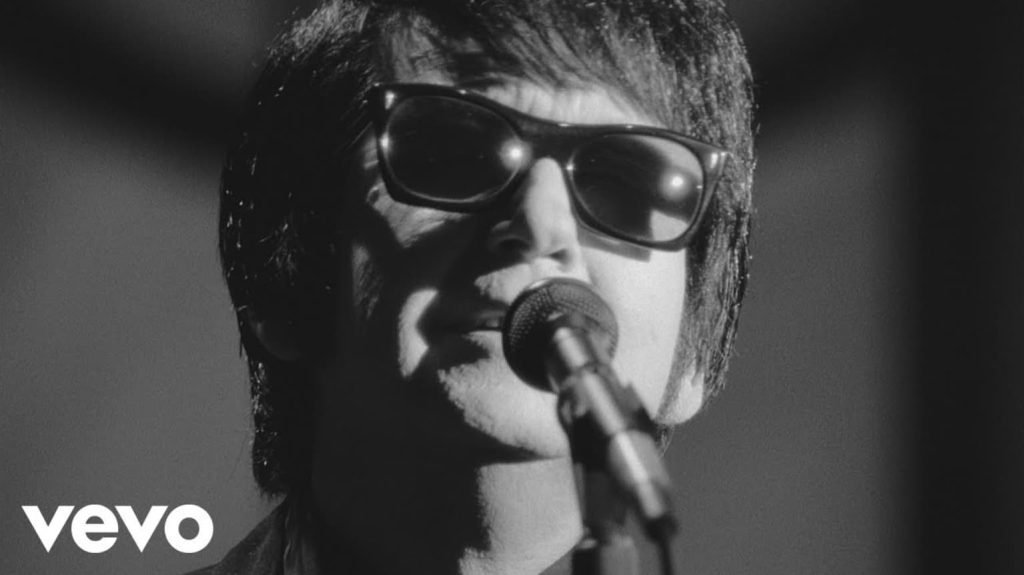
Roy Orbison – “Only the Lonely (Know How I Feel)”: A Masterpiece of Melancholy and Vocal Artistry
Roy Orbison, with his distinctive vocal range, operatic delivery, and penchant for melancholic ballads, carved a unique niche in the landscape of rock and roll. Unlike the overtly rebellious and energetic sounds of many of his contemporaries, Orbison’s music explored the depths of human emotion, particularly themes of loneliness, heartbreak, and unrequited love. “Only the Lonely (Know How I Feel),” released in 1960, stands as a quintessential example of his signature style, showcasing his extraordinary vocal abilities and his talent for crafting emotionally resonant songs. This analysis will delve into the musical intricacies, lyrical themes, and enduring legacy of this iconic track.
“Only the Lonely” was co-written by Orbison and Joe Melson. The song’s structure is notable for its dramatic build-up, moving from a quiet, almost whispered opening to a powerful, soaring chorus. This dynamic range, coupled with Orbison’s distinctive vibrato and falsetto, creates a sense of emotional intensity that few artists could match. The song was recorded with a full orchestra, a common practice for Orbison’s recordings, which added a layer of sophistication and grandeur to the arrangement. The use of strings, in particular, enhances the song’s melancholic atmosphere, creating a sense of sweeping sadness and longing.
The song’s arrangement is meticulously crafted, with each instrument playing a crucial role in conveying the emotional weight of the lyrics. The gentle acoustic guitar intro sets a somber tone, while the subtle use of timpani drums adds a sense of dramatic tension. The backing vocals, provided by The Jordanaires (who also frequently worked with Elvis), provide a haunting counterpoint to Orbison’s lead vocal, further emphasizing the theme of loneliness. The song’s bridge, with its dramatic key change and soaring vocal performance, is a masterclass in emotional delivery, building to a powerful climax before returning to the melancholic refrain.
The lyrics of “Only the Lonely” are simple yet profoundly effective in conveying the pain of unrequited love. The song speaks to the universal experience of longing for someone who is just out of reach, capturing the feelings of isolation and despair that often accompany such situations. The opening lines, “Only the lonely / Know the way I feel tonight,” immediately establish the song’s central theme, inviting the listener into a world of solitude and heartache. The use of vivid imagery, such as “The night is long and the shadows grow,” further enhances the song’s melancholic atmosphere.
Orbison’s vocal performance is the key to the song’s emotional power. His ability to convey vulnerability and raw emotion through his voice is unparalleled. The way he stretches certain notes, particularly during the chorus, adds a sense of yearning and desperation. His use of falsetto, a hallmark of his vocal style, is particularly effective in conveying the pain and fragility of the lonely heart.
“Only the Lonely” became a massive hit upon its release, reaching number two on the Billboard Hot 100 chart. It established Orbison as a major force in popular music and cemented his reputation as a master of the ballad. The song’s influence can be heard in the work of countless artists who followed, from The Beatles to Bruce Springsteen. Its enduring appeal lies in its ability to tap into universal emotions of loneliness and heartbreak, resonating with listeners across generations.
“Only the Lonely” is more than just a pop song; it’s a work of art. Its meticulous arrangement, poignant lyrics, and Orbison’s unparalleled vocal performance combine to create a truly unforgettable listening experience. It stands as a testament to the power of music to express the deepest and most complex human emotions, solidifying its place as a timeless classic. It remains a powerful reminder of Orbison’s unique talent and his lasting contribution to music.